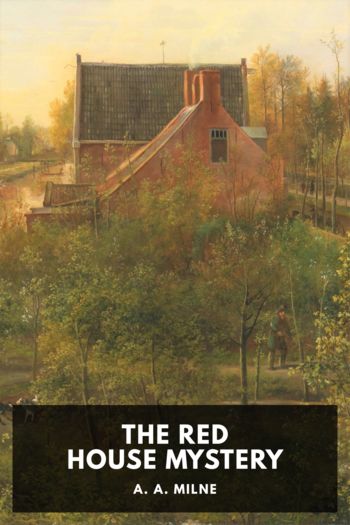Short Fiction - Edgar Allan Poe (book reader for pc .TXT) 📗

- Author: Edgar Allan Poe
Book online «Short Fiction - Edgar Allan Poe (book reader for pc .TXT) 📗». Author Edgar Allan Poe
“Its adaptation to the eyes which were to behold it upon earth.” In his explanation of this phraseology, Mr. Ellison did much towards solving what has always seemed to me an enigma. I mean the fact (which none but the ignorant dispute), that no such combinations of scenery exist in Nature as the painter of genius has in his power to produce. No such Paradises are to be found in reality as have glowed upon the canvas of Claude. In the most enchanting of natural landscapes, there will always be found a defect or an excess—many excesses and defects. While the component parts may exceed, individually, the highest skill of the artist, the arrangement of the parts will always be susceptible of improvement. In short, no position can be attained, from which an artistical eye, looking steadily, will not find matter of offence, in what is technically termed the composition of a natural landscape. And yet how unintelligible is this! In all other matters we are justly instructed to regard Nature as supreme. With her details we shrink from competition. Who shall presume to imitate the colors of the tulip, or to improve the proportions of the lily of the valley? The criticism which says, of sculpture or of portraiture, that “Nature is to be exalted rather than imitated,” is in error. No pictorial or sculptural combinations of points of human loveliness, do more than approach the living and breathing human beauty as it gladdens our daily path. Byron, who often erred, erred not in saying:
I’ve seen more living beauty, ripe and real,
Than all the nonsense of their stone ideal.
In landscape alone is the principle of the critic true; and, having felt its truth here, it is but the headlong spirit of generalization which has induced him to pronounce it true throughout all the domains of Art. Having, I say, felt its truth here. For the feeling is no affectation or chimera. The mathematics afford no more absolute demonstrations, than the sentiment of his Art yields to the artist. He not only believes, but positively knows, that such and such apparently arbitrary arrangements of matter, or form, constitute, and alone constitute, the true Beauty. Yet his reasons have not yet been matured into expression. It remains for a more profound analysis than the world has yet seen, fully to investigate and express them. Nevertheless is he confirmed in his instinctive opinions, by the concurrence of all his compeers. Let a composition be defective; let an emendation be wrought in its mere arrangement of form; let this emendation be submitted to every artist in the world; by each will its necessity be admitted. And even far more than this, in remedy of the defective composition, each insulated member of the fraternity will suggest the identical emendation.
I repeat that in landscape arrangements, or collocations alone, is the physical Nature susceptible of “exaltation” and that, therefore, her susceptibility of improvement at this one point, was a mystery which, hitherto I had been unable to solve. It was Mr. Ellison who first suggested the idea that what we regarded as improvement or exaltation of the natural beauty, was really such, as respected only the mortal or human point of view; that each alteration or disturbance of the primitive scenery might possibly effect a blemish in the picture, if we could suppose this picture viewed at large from some remote point in the heavens. “It is easily understood,” says Mr. Ellison, “that what might improve a closely scrutinized detail, might, at the same time, injure a general and more distantly observed effect.” He spoke upon this topic with warmth: regarding not so much its immediate or obvious importance (which is little), as the character of the conclusions to which it might lead, or of the collateral propositions which it might serve to corroborate or sustain. There might be a class of beings, human once, but now to humanity invisible, for whose scrutiny and for whose refined appreciation of the beautiful, more especially than for our own, had been set in order by God the great landscape-garden of the whole earth.
In the course of our discussion, my young friend took occasion to quote some passages from a writer who has been supposed to have well treated this theme.
“There are, properly,” he writes, “but two styles of landscape-gardening, the natural and the artificial. One seeks to recall the original beauty of the country, by adapting its means to the surrounding scenery; cultivating trees in harmony with the hills or plain of the neighboring land; detecting and bringing into practice those nice relations of size, proportion and color which, hid from the common observer, are revealed everywhere to the experienced student of nature. The result of the natural style of gardening, is seen rather in the absence of all





Comments (0)